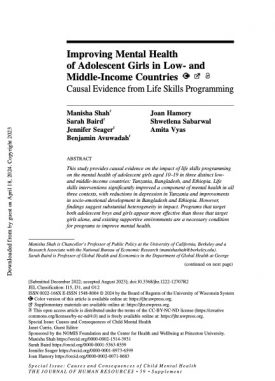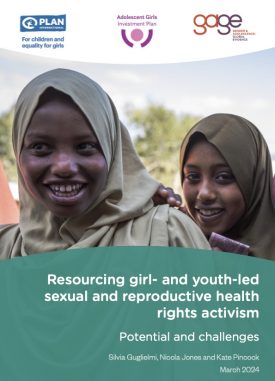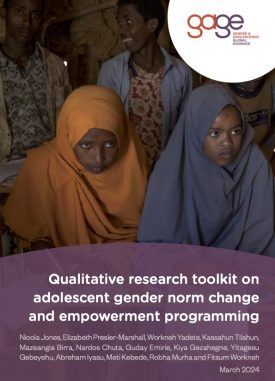Following the detection of the first covid-19 cases in February, the government of Lebanon declared a state of ‘general mobilisation’, enforcing a night curfew, shutting down most public and private institutions, and closing the land and sea border crossing points and the Beirut Rafic Hariri International Airport. Educational institutions were also closed, exacerbating the challenges faced by young people in education who had already endured frequent interruptions to their schooling since October 2019 as a result of anti-government protests. In late April some measures were eased, and schools and educational institutions are expected to reopen in early June. While the number of confirmed cases is moderate (911 as of 18 May), this is likely in part due to low testing rates.
In Lebanon, the lockdown came amid nationwide protests against the deteriorating economic situation and rampant corruption and mismanagement of the ruling political class. Although the protests were interrupted by the lockdown, smaller rallies erupted in the country as a result of increasing poverty and the lack of social assistance available to people affected by the covid-19 pandemic and the worsening economic crisis.
In response to growing calls to ensure that national and international responses to the covid-19 situation are inclusive of all social groups, including refugee communities, and context-tailored, this policy brief draws on virtual qualitative interviews with vulnerable young people in Lebanon to better understand the compounded effects of the pandemic and the pre-existing economic and political crisis facing the country. It is part of a cross-country series designed to share emerging findings in real time from qualitative interviews with adolescents in the context of covid-19. The young people involved are part of the Gender and Adolescence: Global Evidence (GAGE) programme’s longitudinal research in the Middle East, East Africa and South Asia. More specifically, this brief draws on data from 60 telephone conversations with vulnerable 15–19-year-old Syrian, Palestinian and Lebanese adolescent boys and girls, including married girls, held in April and May 2020.
Suggested citation
Youssef, S., Jones, N., Małachowska, A. with Saleh, M. (2020) ‘Listening to young people’s voices under covid-19. Double crisis in Lebanon: effects of a pandemic and economic crisis on Lebanon’s most vulnerable adolescents.’ Policy brief. London: Gender and Adolescence: Global Evidence. (https://www.gage.odi.org/publication/double-crisis-effects-of-a-pandemic-and-economic-crisis-on-lebanons-most-vulnerable-adolescents/)


